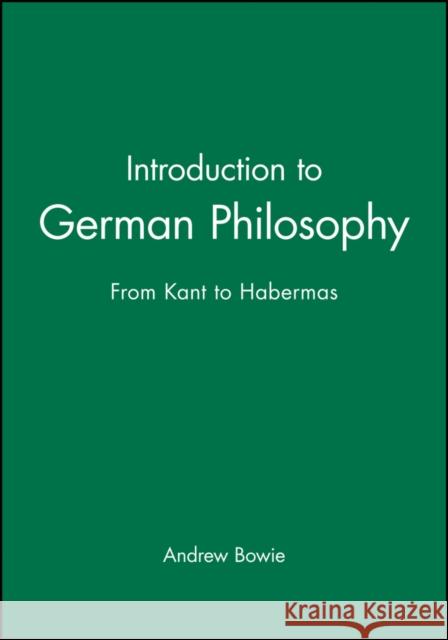Introduction to German Philosophy: From Kant to Habermas » książka
topmenu
Introduction to German Philosophy: From Kant to Habermas
ISBN-13: 9780745625713 / Angielski / Miękka / 2003 / 304 str.
Introduction to German Philosophy is the only book in English to provide a comprehensive account of the key ideas and arguments of modern German philosophy from Kant to the present.
- the first book in English to provide a comprehensive account of the key ideas and arguments of modern German philosophy from Kant to the present.
- offers an accessible introduction to the work, among others, of Kant, Fichte, the Romantics, Hegel, Marx, Nietzsche, Wittgenstein, the Vienna Circle, Husserl, Heidegger, Benjamin, Adorno, Gadamer, and Habermas.
- considers how German philosophy reacts to revolutionary changes in modern science, society, and culture;
- ideal for anyone wanting to know more about the role of the German tradition within philosophy and literature as a whole.











